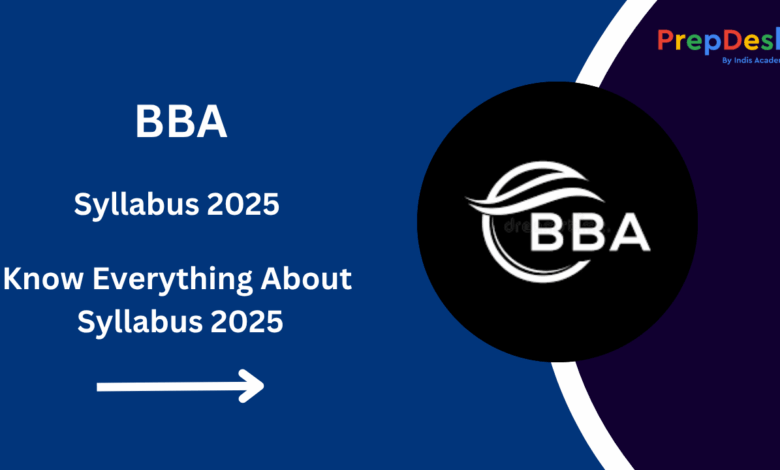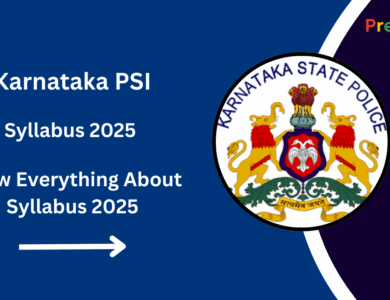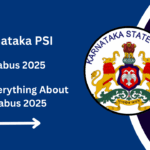The Bachelor of Business Administration (BBA) is a comprehensive 3‑year professional degree aimed at building managerial, analytical, and leadership skills. This detailed syllabus covers all six semesters, subjects, topic outlines, descriptions, and marks distribution to help you plan your studies effectively.
BBA Exam Overview
The Bachelor of Business Administration (BBA) is an undergraduate program designed to equip students with foundational and advanced knowledge in business and management. The program spans 3 years divided into 6 semesters, blending theoretical concepts with practical applications.
Examinations are held at the end of each semester, with evaluation through internal assessments and university exams.
Exam Structure and Pattern
Parameter
Details
Program Duration
3 Years (6 Semesters)
Exam Frequency
End of Each Semester
Evaluation Pattern
Internal Assessment (30%) + End-Semester Exam (70%)
Total Marks per Subject
100 Marks
Assessment Components
Class Tests, Assignments, Presentations, Practical Work, Projects, Viva Voce
Project and Internship
Mandatory for final year, evaluated separately
Minimum Passing Criteria
Typically 40% aggregate, subject to university rules
Breakdown of Assessment Components
Internal Assessment (30%) : Quizzes, assignments, presentations, participation.End-Semester Examination (70%) : Formal university exams testing theory and application.Project/Internship : Practical exposure evaluated in final semester.Viva Voce/Presentation : Oral exams to assess communication and understanding.
BBA Semester-Wise Syllabus with Detailed Topics
Semester 1: Foundations of Business
Subject
Topics
Description
Marks
Principles of Management
Planning, Organizing, Staffing, Leading, Controlling
Covers goal-setting tools, organizational structure, HR planning, leadership styles, and performance control.
100
Business Economics
Demand & Supply, Elasticity, Cost Analysis, Market Structures
Introduction to micro and macroeconomic analysis including consumer behavior, firm costs, and market forms.
100
Financial Accounting
Journal, Ledger, Trial Balance, Final Accounts, Depreciation
Fundamentals of financial recording, preparation of accounts, adjusting entries, and depreciation methods.
100
Business Communication
Letters, Emails, Reports, Presentation Skills, Interpersonal Communication
Professional writing, effective presentations, and mastering interpersonal communication skills.
100
Business Mathematics
Sets, Matrices, Differentiation, Integration, Linear Programming
Mathematical tools for data analysis, optimization, and business decision-making.
100
Semester 2: Analytics & Organizational Behaviour
Subject
Topics
Description
Marks
Organizational Behavior
Personality, Perception, Motivation Theories, Leadership, Group Dynamics, Conflict Management
Examines individual & team behavior, motivational models (Maslow, Herzberg), leadership styles, and conflict resolution.
100
Business Statistics
Central Tendency, Dispersion, Probability, Sampling, Regression, Correlation
Statistical measures, probability rules, hypothesis testing, regression, and correlation analysis.
100
Business Environment
Economic Policies, Political-Legal Factors, Social & Technological Trends
Analyzes external factors affecting business operations and strategic decisions.
100
Marketing Management
Segmentation, Targeting, Positioning, 4Ps, Consumer Behavior, Branding
Strategic marketing planning, consumer journey, and brand positioning.
100
Computer Applications
MS Excel (Formulas, Pivot), PowerPoint, Email Basics, DB Intro
Practical IT skills for data analysis, presentations, and basic database handling.
100
Semester 3: HR, Legal & Financial Foundations
Subject
Topics
Description
Marks
Human Resource Management
HR Planning, Recruitment, Training, Appraisal, Compensation
Workforce planning, recruitment, employee development, performance evaluation, and compensation management.
100
Business Law
Contract Act, Sale of Goods, Companies Act, Consumer Protection
Legal framework governing business contracts, corporate laws, and consumer rights.
100
Financial Management
TVM, Capital Budgeting, Cost of Capital, Working Capital
Financial planning, investment decisions, cost analysis, and liquidity management.
100
Management Information Systems
IS Fundamentals, ERP, CRM, DSS
Enterprise systems, customer relationship management, and decision support systems.
100
Soft Skills & Personality Development
Time Management, Teamwork, Negotiation, Resumes, Interviews
Personal effectiveness, collaboration, conflict handling, and career preparation skills.
100
Semester 4: Operations, Marketing Strategy & E‑Business
Subject
Topics
Description
Marks
Production & Operations Management
Layout, Capacity Planning, EOQ, Quality (TQM/Six Sigma), Supply Chain
Operational efficiency, quality control, inventory models, and logistics management.
100
Research Methodology
Design, Sampling, Data Tools, Hypothesis Testing, Report Writing
Research design, sampling techniques, data analysis, hypothesis testing, and thesis report writing.
100
Consumer Behaviour
Psychology, Perception, Learning, Attitude, Buying Process
Study of factors influencing consumer decisions and post-purchase behavior.
100
Cost & Management Accounting
Costing Methods, ABC, Budgeting, Variance Analysis
Cost allocation techniques, budgeting processes, and variance analysis for control.
100
E‑Commerce
B2B/B2C Models, Payments, Web Marketing, Cyber Laws
Digital business models, online payment systems, digital marketing, and legal aspects.
100
Semester 5: Strategy, Global Business & Entrepreneurship
Subject
Topics
Description
Marks
Strategic Management
Vision/Mission, SWOT/TOWS, Corporate & Business Strategy, BSC, Implementation
Strategic planning, competitive analysis, and execution using tools like Balanced Scorecard.
100
Entrepreneurship Development
Ideation, Business Plan, Feasibility, Funding, Growth, Exit
Steps to start and scale new ventures including business plans, financing, and exit strategies.
100
International Business
Globalization, WTO, FX, Export/Import, Cross-Cultural Marketing
International trade, currency risks, market entry strategies, and cross-cultural considerations.
100
Elective I (e.g., Digital Marketing)
SEO/SEM, Social Media, Content, Analytics
Online marketing techniques and data-driven campaign management.
100
Summer Internship Project
Research, Data Collection, Analysis, Report, Viva
Real-world internship with project-based learning and final presentation.
100
Semester 6: Ethics, Projects & Specializations
Subject
Topics
Description
Marks
Business Ethics & CSR
Ethical Theories, Governance, Stakeholders, CSR Models
Corporate ethics, stakeholder management, and corporate social responsibility.
100
Project Management
Life Cycle, WBS, Gantt, PERT/CPM, Risk, Evaluation
Planning and execution techniques with risk assessment and evaluation methods.
100
Elective II (e.g., Financial Analytics)
Ratios, Dashboards, Forecasting, Risk, Intro to ML
Financial data analysis, visualization, forecasting techniques, and basics of machine learning.
100
Viva‑Voce
Comprehensive Q&A, Presentation, Defense of Projects
Oral examination covering integrated knowledge and project insights.
100
Major Project
Research/Industry-based, Review, Analysis, Recommendations, Report
Capstone project solving real-world problems with final report and viva.
100
Download Complete BBA Syllabus PDF
Click below to download the full BBA Syllabus 2025 PDF with all topic descriptions and marks distribution:
Download Complete BBA Syllabus PDF
Recommended Books by Semester
Semester
Subject
Book & Edition
Author(s)
1
Principles of Management
Principles & Practices, 11e
L.M. Prasad
1
Business Economics
Managerial Economics, 6e
D.M. Mithani
1
Financial Accounting
Financial Accounting, 11e
T.S. Grewal
2
Marketing Management
Marketing Management, 16e
Philip Kotler & Keller
3
Human Resource Management
HRM, 6e
K. Aswathappa
4
Strategic Management
Strategic Management, 12e
Charles Hill & Jones
5
Entrepreneurship
Starting & Operating a Small Business
Steve Mariotti & Glackin
6
Financial Analytics
Analytics & Data Science for Finance
Alvin Makridis & DinoCaster
Specialization Tracks & Projects
Track
Core Focus
Suggested Electives/Projects
Careers
Marketing
Digital Ads, Brand Strategy
Consumer Behavior, Elective Projects in Marketing
Brand Manager, Digital Marketer
Finance
Financial Modeling, Investments
Financial Analytics, Projects on Valuation
Financial Analyst, Investment Manager
Human Resource
Talent Management, Employee Development
HR Analytics Projects, Internships in HR Dept.
HR Consultant, Talent Acquisition
International Business
Global Trade & FX
Export Documentation, Global Case Studies
Export Manager, IB Consultant
IT & Analytics
ERP, MIS, Business Analytics
MIS Projects, ERP Implementation Case
IT Analyst, BI Developer
Entrepreneurship
Startup Planning & Scaling
Business Plan & Startup Internship
Founder, Business Consultant
Preparation Strategy
Plan semester-wise goals with weekly milestones.
Use diagrams and mind-maps for complex topics.
Practice Excel and analytics tools hands-on.
Participate in case-based discussions.
Follow current business news for real-world context.
Regularly revise and solve previous years’ question papers.
Utilize internships for practical learning and networking.
Conclusion
The BBA syllabus is designed to develop a well-rounded business professional with expertise across management, finance, marketing, HR, and analytics. Regular study, practical exposure, and staying updated with global business trends will help students succeed academically and professionally.
Copy URL
URL Copied






